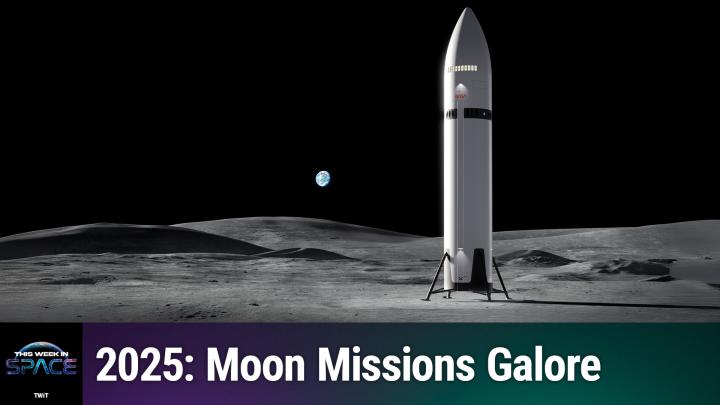Starship Flight 7: A Partial Success or Fiery Failure?
AI created, human edited.
In the latest episode of This Week in Space, hosts Rod Pyle and Tariq Malik discuss the highly anticipated Starship Flight 7 test conducted by SpaceX. They discuss the successes, failures, and implications of this crucial milestone in the company's quest to revolutionize space exploration.
The test flight, which took place on January 16th, 2025, showcased the capabilities of SpaceX's next-generation Starship rocket. Pyle and Malik begin by highlighting the mission's partial success, with the rocket's booster stage completing its ascent and being caught by the launch tower's robotic arms. This maneuver, a signature of SpaceX's reusable rocket technology, was captured in stunning detail by cameras mounted on the launch tower.
However, the triumph was short-lived, as the upper stage of the rocket experienced a malfunction shortly after separation. According to SpaceX CEO Elon Musk, a fuel leak in the rocket's inner tank area likely caused a fire that ultimately led to the vehicle's explosive demise over the Turks and Caicos Islands.
Pyle and Malik discuss the implications of this failure, noting that the debris from the explosion posed a potential risk to populated areas below. The incident has prompted an investigation by the Federal Aviation Administration (FAA) to determine if SpaceX violated the terms of its launch license, which prohibits putting public safety at risk.
Despite the setback, the hosts emphasize that SpaceX remains committed to learning from its failures and improving its rocket technology. Musk has already outlined plans to address the issue by installing sensors and a fire suppression system in the rocket's affected area.
Pyle and Malik also place the Starship Flight 7 test in the broader context of SpaceX's ambitious plans for space exploration. They note that the rocket tested in this flight featured significant upgrades over previous versions, including more powerful engines, increased payload capacity, and improved heat shielding. These advancements are crucial to SpaceX's long-term goal of establishing a sustainable human presence on Mars.
Throughout the discussion, the hosts grapple with the inherent risks and challenges of pushing the boundaries of space technology. They acknowledge that setbacks like the Starship Flight 7 failure are an inevitable part of the process, but express confidence in SpaceX's ability to learn from its mistakes and continue innovating.
The episode also touches on the broader landscape of commercial space exploration, with Pyle and Malik comparing the Starship test to the recent successful launch of Blue Origin's New Glenn rocket. While they acknowledge the significance of Blue Origin's achievement, they argue that SpaceX remains at the forefront of the industry due to its rapid iteration and willingness to take risks.
As the conversation winds down, Pyle and Malik reflect on the future of space exploration and the role that private companies like SpaceX will play in achieving humanity's cosmic ambitions. They express excitement about the prospect of seeing Starship carry humans to the Moon and Mars in the coming years, while also acknowledging the significant challenges that still lie ahead.
This week's episode of This Week in Space is a must-listen for space enthusiasts and anyone interested in the future of human spaceflight. Pyle and Malik offer a nuanced and engaging analysis of SpaceX's Starship Flight 7 test, providing valuable insights into the technical, regulatory, and philosophical dimensions of this historic event. So tune in now to get the full story behind one of the most significant moments in the history of space exploration.
